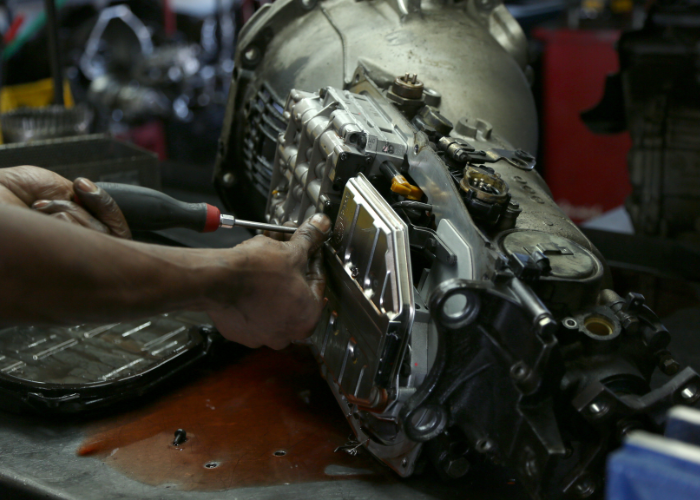Why Is Transmission Service Necessary for Your Vehicle's Health?
- 23:44
- By aussieshub
- 0 Comments
Have you ever wondered what keeps your car moving smoothly on the road? The answer lies in the heart of your vehicle – the transmission system. This complex machinery is responsible for transferring power from the engine to the wheels, allowing you to accelerate and decelerate, and ensuring a smooth driving experience.
But just like any other component of your vehicle, your transmission requires regular maintenance and servicing to keep it running smoothly and to prevent major issues down the line. In this article, we'll discuss the importance of transmission service, how it can save you from costly repairs, and how often you should schedule it for your vehicle. So, let's dive in.
1. Understanding the Transmission System
Your transmission is one of the most critical and complex components of your vehicle. It is responsible for taking the power generated by your engine and converting it into the motion that drives your wheels. This is achieved through a series of gears and clutches that work together to regulate engine speed and torque output.
While the transmission system is designed to be durable, it is not infallible. Over time, the wear and tear of daily driving can lead to issues that can damage your transmission and, if left unchecked, can result in costly repairs or even a complete transmission replacement.
2. Types of Transmission: Manual vs. Automatic
There are two main types of transmission systems: manual and automatic. A manual transmission (also known as a stick shift) requires the driver to manually change gears using a clutch pedal and gear shift. Automatic transmissions, on the other hand, use a torque converter and a series of planetary gears to automatically control gear shifting, allowing for a smoother and more convenient driving experience.
While both types of transmissions have their own unique maintenance requirements, regular transmission service is essential for both. Neglecting proper maintenance for either type of transmission can result in decreased performance, lower fuel efficiency, and even major mechanical issues.
3. Signs of Transmission Problems
It's essential to be aware of the warning signs that may indicate issues with your transmission. Some common symptoms that may suggest transmission problems include:
- Difficulty shifting gears
- Slipping or grinding gears
- A burning smell coming from under the hood
- Fluid leaks underneath the vehicle
- Strange noises while accelerating or decelerating
If you experience any of these symptoms or suspect that your transmission may be experiencing issues, it's essential to promptly schedule a transmission service with a qualified mechanic.
4. The Transmission Service Process
During a transmission service, a mechanic will typically perform the following tasks:
- Inspect and clean the transmission pan and filter
- Replace transmission fluid with fresh, high-quality fluid
- Inspect and adjust the bands and clutches
- Check for leaks and other signs of wear or damage
- Perform a road test to ensure proper operation
These steps help to ensure that your transmission is functioning correctly and efficiently, providing a smoother driving experience and preventing more significant issues down the line.
5. How Regular Transmission Service Saves You Money
Many vehicle owners neglect the importance of regular transmission service, putting off maintenance until a significant issue arises. This can be a costly mistake, as repairing or replacing a damaged transmission can often cost thousands of dollars. By contrast, regular transmission service can help prevent these major issues, saving you money in the long run.
Regular transmission service not only helps to catch and address small issues before they become major problems but also ensures that your transmission is functioning at its optimal efficiency. This can translate into improved fuel efficiency and a smoother, more enjoyable driving experience.
6. When to Schedule Transmission Service
The frequency at which you should schedule transmission service will depend on several factors, including your vehicle's make and model, your driving habits, and the type of transmission you have. As a general rule of thumb, most vehicle manufacturers recommend performing transmission service every 30,000 to 60,000 miles.
However, if you frequently tow heavy loads, drive in rough terrain or extreme weather conditions, or have an older vehicle with high mileage, you may need to schedule transmission service more frequently. It's essential to consult your vehicle's owner's manual or consult with a qualified mechanic to determine the appropriate service interval for your specific vehicle and driving conditions.
7. Conclusion: Staying Ahead of Transmission Issues
In conclusion, proper transmission service is an essential aspect of maintaining your vehicle's health and performance. By catching minor issues early, you can prevent them from becoming costly repairs, saving money in the long run. Regular transmission service can also improve your vehicle's overall performance and fuel efficiency, providing a better driving experience.
To keep your vehicle running smoothly and to protect your investment, don't neglect the importance of transmission service. Schedule regular maintenance with a trusted mechanic and stay vigilant for any signs of transmission problems. By being proactive with your vehicle's care, you can ensure that it remains reliable and ready for the road ahead.






0 comments
Note: only a member of this blog may post a comment.